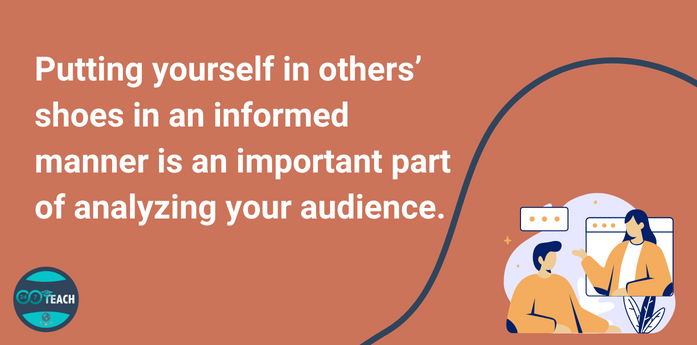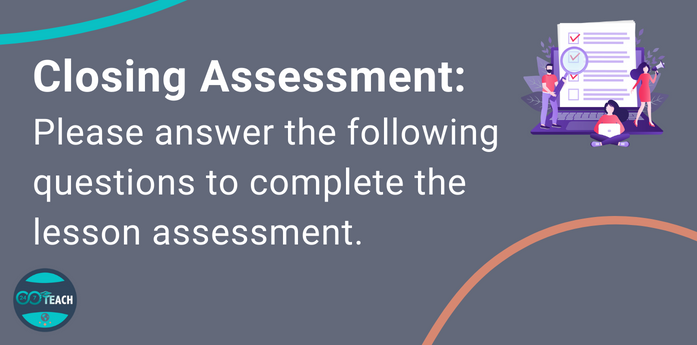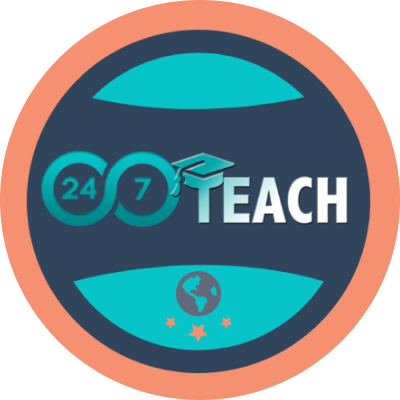Lesson 1: The Fundamentals of Academic Writing
Prefer to listen to this lesson? Click below.
Workshop Scenario:
Please think of yourself in the following scenario as you complete this workshop:
You are a student working part-time as a tutor. A college student named Hannah approaches you for help.
She mentions that she is struggling with her academic writing and expresses frustration with her recent essays, which she feels are poorly structured and lack clarity. She strongly desires to improve her writing skills but feels overwhelmed by the expectations of academic writing.
You need to take an introductory course on academic writing to provide her with adequate guidance. You remember your supervisor mentioning 24/7 Teach as an excellent resource for the workshop you’re looking for.
Today, you will learn the fundamentals of academic writing and the different types. Please take notes throughout the lesson, as you will need to refer to them in your closing assessment.
Lesson Objective:
Your objective today is to identify and understand the fundamentals of effective academic writing.
As you read, please consider the following questions:
What are the key elements of effective academic writing, and why are they important?
What factors should you consider when determining your audience's expectations?
Pre-Assessment
Please complete a short Pre-assessment on your experience with academic writing.
Lesson 1: The Fundamentals of Academic Writing
1.1 What is meant by Academic Writing?
Have you ever wondered what sets great academic writers apart from the rest? It's not just their knowledge of a subject - it's their ability to convey that knowledge in a way that captivates their audience and inspires critical thinking.
Academic writing is a powerful tool that allows you to communicate complex ideas and research findings in a clear and concise manner. It's the art of crafting words into a masterpiece with a specific audience in mind: your academic peers.
Unlike casual writing, academic writing is structured, well-organized, and backed by extensive research. It involves diving into a topic and analyzing different perspectives to form a unique argument that contributes to the academic conversation.
Effective academic writing should be well-organized and structured, with a clear introduction that sets up the discussion, a well-developed body that supports the discussion, and a conclusion that summarizes the main points and leaves a lasting impression on the reader.
1.2 Types of Academic Writing
There are different types of academic writing that serve particular purposes and are used in specific disciplines. Each type of academic writing has its own unique features and conventions, which reflect the expectations of the discipline, audience, and purpose.
Academic writing can be broadly categorized into four types: descriptive, analytical, persuasive, and critical. These four types of academic writing differ in their purpose, style, and the kind of analysis that they employ.
Descriptive writing is often used in disciplines like literature and the arts, where the focus is on describing and analyzing the features of a particular text or work of art.
Analytical writing is commonly used in scientific and social science disciplines, where the goal is to analyze data, identify patterns, and draw conclusions.
Persuasive writing is often used in fields like law, politics, and marketing, where the goal is to convince the reader to adopt a particular viewpoint or take a specific action.
Critical writing is often used in philosophy, literature, and the social sciences, where the goal is to question assumptions and challenge existing theories.
By using the appropriate type of academic writing for a given discipline, audience, and purpose, scholars and students can effectively communicate their ideas and findings to others in their field.
1.3 What are the Fundamentals?
Academic writing is a complex process requiring attention to multiple factors to create a compelling and impactful piece of writing. Three of the most important factors influencing academic writing are purpose, target audience, and tone.
Understanding the Importance of Purpose
For academic writing to be effective and impactful, it is essential to understand the purpose. The purpose of writing varies depending on the discipline, audience, and assignment.
Here are some of the key reasons why understanding the purpose of academic writing is important:
Clarity: Understanding the purpose of academic writing is critical to maintaining a clear and concise writing style. By identifying the primary focus of the writing, the writer can organize their thoughts and present their ideas in a way that is easy to understand.
Relevance: Recognizing the direction of a piece of writing allows the writer to identify the most relevant and significant information to include. This ensures that the writing is well-structured, informative, and contains no extraneous or irrelevant details.
Audience: Knowing who will read their writings allows the writer to customize the content to the intended audience. By determining what is most exciting and relevant to the readers, the writer can adapt their tone, style, and vocabulary to engage and inform the reader.
Quality: Maintaining quality is essential for ensuring that the writing meets the assignment's requirements and is of a high standard. By identifying the necessary length, format, and style, the writer can produce an effective and well-crafted piece of writing.
Impact: Once the writer has considered all the previous points, it is crucial to ensure that the final piece of writing significantly impacts the reader. By selecting appropriate evidence, examples, and arguments, the writer can make a persuasive and compelling case that persuades the reader to accept their viewpoint.
Analyzing the Target Audience
Writing an academic piece is not just about getting your words onto the page. You need to consider your audience, too. Understanding who your readers are and analyzing what they are looking for in your writing can help you to tailor your message to their needs and interests. After all, they're the ones who will be reading your writing and forming an opinion about it.
So, who is your audience? You'll want to think about factors such as their age, educational level, cultural background, and professional expertise. Knowing these details can help you determine the appropriate level of detail and tone. But it's not just about demographics. You'll also want to consider why your audience is reading your writing. Are they looking for specific information, trying to solve a problem, or seeking guidance on a particular issue?
Finally, you'll want to think about the broader context of your writing. Will it be part of a larger academic conversation, or will a more general audience read it? By knowing the answer, you'll be able to adjust your writing's complexity and technical detail to match your readers' expectations.
The Role of Tone
When it comes to academic writing, tone is a crucial element that can often make or break your writing. The tone of your writing can affect how your audience perceives your message and their overall impression of you as a writer.
The tone of your writing is the overall mood or attitude that you convey in your writing. It can be formal or informal, serious or lighthearted, objective or subjective, and much more. When it comes to academic writing, the tone you use should be appropriate for your audience and purpose and should reflect the level of professionalism expected in your field.
For example, suppose you are writing an academic essay for a literature class. In that case, the tone should be formal and objective, as you are expected to analyze the literary work in a serious and scholarly manner. However, if you are writing a personal reflection essay for an English class, the tone can be more informal and subjective as you are sharing your personal experiences and thoughts.
It's important to remember that tone is not just about the words you choose but also the sentence structure, grammar, and punctuation you use. A well-written sentence can convey the appropriate tone for your writing, while a poorly written sentence can make your writing seem unprofessional and unpolished.
When writing in a formal academic tone, it's important to avoid using slang, contractions, and overly emotional language. Instead, focus on using clear, concise language and proper grammar and punctuation. This will help you convey a sense of professionalism and authority in your writing.
Choosing the appropriate tone for your audience and purpose can help you establish credibility and authority in your writing and can make your message more effective and impactful. Focusing on your tone and using clear, concise language can elevate your writing to the next level and achieve success in your academic endeavors.
Rubrics
A rubric is a scoring guide that outlines the criteria for evaluating your work. Students can better understand the expectations for their writing assignments, allowing them to focus their efforts and produce more effective work.
Rubrics provide valuable feedback to students as well, helping them identify areas where they excel and where they can improve, and promoting self-reflection and self-improvement.
Using rubrics as a self-assessment technique will improve the quality of your writing. You can use the essay writing rubric attached below as a sample for future reference.
In Conclusion
A clear understanding of your purpose, audience, and tone can help you craft effective and impactful writing that resonates with your readers. Focusing on these key elements ensures that your writing is well-structured, well-supported, and effectively communicates your message.
Closing Assessment:
Now that you have reached the end of this lesson, you should be able to answer the following:
What are the key elements of effective academic writing, and why are they important?
What factors should you consider when determining your audience's expectations?
Participate in the 24/7 Discussion Forum
Please answer the following question in the comment section below and interact with learners from around the world:
You are writing an essay for your AP literature class, describe what tone and purpose you would consider for your target audience.
Please read and reply to other learners’ answers in the forum.
Course created by: Sarah Moutaoukil, a 24/7 Instructional Design Superstar











